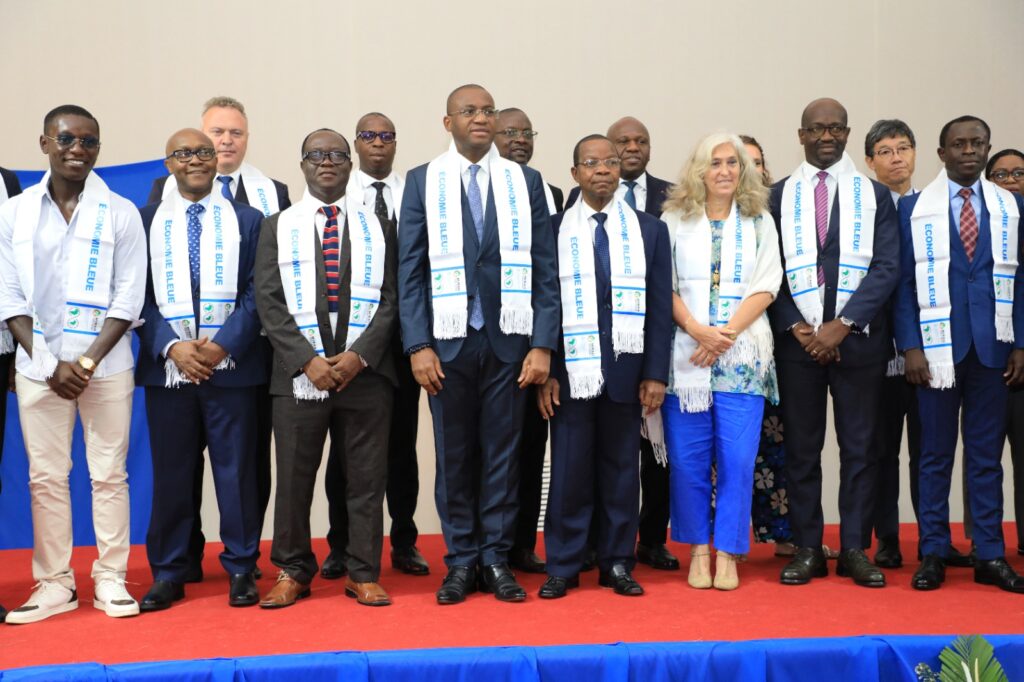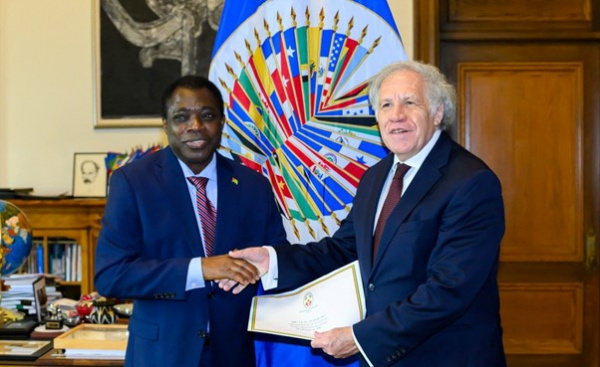With a 560 km-long coastline, as well as lagoons, lakes, and rivers, Ivory Coast aims to stimulate economic growth by fully leveraging the potential of the ocean and inland aquatic areas.
In pursuit of this goal, the Ministry of Animal and Fisheries Resources, in partnership with the FAO, organized a Forum on Investment in the Blue Economy on Friday, April 25, 2025, in Abidjan, as part of the Fisheries and Aquaculture Fair. The event focused on maximizing the value of Ivory Coast’s 500 km of coastline, as well as its lakes and lagoons.
Ivory Coast has been promoting the blue economy since 2015 through the Blue Growth Initiative, an approach that has helped better define the concept of the blue economy and Exclusive Economic Zones (EEZs)—maritime areas over which the state exercises sovereign rights.
According to Sidi Touré, Minister of Animal and Fisheries Resources, “Ivory Coast’s maritime front gives us access to an EEZ of 200,000 km². This vast marine area offers development opportunities almost as significant as our landmass.”
With funding from the African Development Bank (AfDB) and technical support from the FAO, the Ivorian government has developed a roadmap and strategic framework for the country’s blue economy, along with guidelines for its implementation.
As part of this momentum, a National Investment Plan for the Blue Economy and a Blue Economy Development Program have been established. Minister Sidi Touré welcomed this framework, which allows the country to harness the ocean’s potential—still underexploited despite its rich biodiversity.
“The goal is to steer the country toward a sustainable blue economy that values oceans and inland aquatic spaces as major sources of national wealth,” the minister emphasized.
Through its National Development Plan (NDP) for 2021–2025, Ivory Coast is committed to becoming an emerging economy, driven by strong growth based on large-scale structural investments.
FAO Representative in Ivory Coast, Mr. Joseph Nyemah, reiterated the UN agency’s commitment to supporting the Ivorian state in developing its blue economy—a key lever for ensuring food security. As part of this collaboration, the FAO has provided strategic tools to support the country’s blue economy policy, including a Blue Economy Strategic Framework.
According to Mr. Nyemah, the blue economy represents an opportunity for Ivory Coast to boost its fishery production, which currently falls short of national consumption needs. He called on financial partners to support this strategy.
Dr. Hamed Kane, representing the African Development Bank (AfDB), stated that the institution aims to make Abidjan a fishing economy hub by supporting infrastructure development. The bank is backing several projects to enhance maritime activity.
Mr. Séka Séka, representing the president of the Economic, Social, Environmental, and Cultural Council (CESEC), noted that “the blue economy is a key driver to stimulate our economy through the valorization of fishery resources and the creation of decent jobs.”
He welcomed the fact that the country is reaching a decisive milestone. Thanks to AfDB funding and FAO support, the Ministry of Animal and Fisheries Resources has developed a series of strategies to promote the blue economy in Ivory Coast.
The country now has significant tools to support any initiative related to blue economy development. It is also home to the second-largest tuna port in the world after Japan and has established a free trade zone to attract investment and support the establishment of fish processing plants.
Source: apanews



